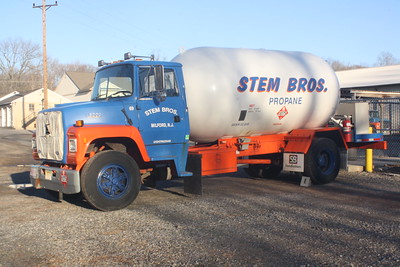
While it is difficult to predict the exact timeline of resource depletion, it is possible that we could eventually run out of propane, a byproduct of natural gas processing and crude oil refining. Propane is a finite resource, and its availability depends on the production and reserves of natural gas and crude oil. As these resources are finite and non-renewable, their production will likely decline over time.
However, a few factors could affect the timeline for depletion of propane reserves:
- Technological advancements: New technologies could help improve extraction efficiency and increase the recovery rate of natural gas and crude oil, extending the lifespan of propane reserves.
- Alternative energy sources: As renewable energy sources like solar, wind, and hydroelectric power become more prevalent and affordable, they could reduce our reliance on fossil fuels, including propane. This might result in propane reserves lasting longer than anticipated.
- Conservation and efficiency: Increased awareness about energy conservation and improvements in energy efficiency can help reduce the overall demand for propane, potentially extending its availability.
- Market forces and geopolitics: Economic factors and geopolitical events can affect the supply and demand for propane, which could impact its depletion timeline.
It is essential to continue investing in renewable energy sources and improving energy efficiency to reduce our dependence on non-renewable resources like propane. Although we may not run out of propane in the immediate future, it is critical to plan for a sustainable energy future.
Providing a specific timeline for how much longer propane reserves will last is challenging due to the various factors that influence the availability of the resource. However, according to the U.S. Energy Information Administration (EIA), there were more than 300 million barrels of propane reserves in the United States alone. Global propane reserves are considerably larger.
The longevity of these reserves depends on the rate of consumption, technological advancements in extraction and production, alternative energy adoption, and efforts towards conservation and energy efficiency. As mentioned earlier, these factors can significantly influence the depletion timeline of propane reserves.
While it’s difficult to provide an exact timeframe, it’s safe to say that propane reserves are expected to last for several decades, assuming current consumption rates and technological advancements continue. Nevertheless, this projection could change based on the factors discussed above.
It is crucial to continue investing in renewable energy sources and improve energy efficiency to reduce our reliance on non-renewable resources like propane for a sustainable energy future.
Factors Influencing Propane Availability
The availability of propane is closely tied to the rate of natural gas and crude oil production, as it is a byproduct of both processes. Technological advancements can impact the efficiency of propane extraction methods, leading to higher recovery rates and extending the life of current reserves. Global energy demand trends also play a crucial role in determining propane consumption, with fluctuations affecting its long-term availability.
There are several factors that can influence the availability of propane:
- Supply and Demand: Propane availability can be affected by the balance of supply and demand. If demand for propane exceeds supply, availability may decrease, and prices may rise.
- Production and Distribution: The production and distribution of propane can be impacted by factors such as weather conditions, transportation disruptions, and production issues.
- Storage: The amount of propane in storage can affect availability. If propane is not stored in sufficient quantities, availability may be limited.
- Government Regulations: Government regulations can impact the production, distribution, and storage of propane. Changes in regulations can affect the availability of propane.
- Geographic Location: Availability can vary depending on the location. Rural areas may have less access to propane due to a lack of infrastructure and transportation options.
- Seasonal Demand: Demand for propane can fluctuate seasonally, with higher demand during the winter months for heating purposes. This can affect the availability of propane during peak demand periods.
- Global Factors: Propane availability can be influenced by global factors such as political instability, changes in trade policies, and international supply and demand dynamics.
Transitioning to Renewable Energy Sources
Transitioning to renewable energy sources is becoming increasingly important as concerns over climate change and the environmental impact of fossil fuels continue to grow. Here are some steps that can be taken to transition to renewable energy sources:
- Increase use of solar power: Solar power is an excellent renewable energy source that can be installed on homes and businesses. Governments can also invest in large-scale solar power projects.
- Utilize wind power: Wind power can also be harnessed through the use of wind turbines. Like solar power, it can be used on a small or large scale.
- Increase use of hydro power: Hydro power can be generated by capturing the energy from water sources, such as dams or tidal power.
- Increase use of geothermal power: Geothermal energy can be harnessed by tapping into heat from the earth’s core.
- Increase use of bioenergy: Bioenergy can be generated from organic matter such as wood, agricultural waste, or biogas from landfills.
- Promote energy efficiency: Reducing energy consumption through energy-efficient buildings, appliances, and transportation can help reduce the need for fossil fuels.
- Support research and development: Governments can invest in research and development to advance renewable energy technologies and make them more cost-effective and efficient.
- Implement policies and incentives: Governments can implement policies and incentives to encourage the adoption of renewable energy, such as tax incentives, subsidies, and renewable energy standards.
Overall, transitioning to renewable energy sources will require a multi-faceted approach involving government policies, technological innovation, and public education and awareness.
Strategies for Prolonging Propane Reserves
Propane is a valuable resource that is used for heating, cooking, and fueling vehicles. Here are some strategies for prolonging propane reserves:
- Energy-efficient appliances: Using energy-efficient appliances can help reduce propane usage and extend reserves. High-efficiency furnaces, water heaters, and stoves can use up to 30% less propane than older models.
- Proper maintenance: Properly maintaining appliances can help them operate more efficiently, reducing the amount of propane they require. Regularly servicing and cleaning appliances, such as furnaces and water heaters, can also help prolong their lifespan.
- Weatherization: Weatherizing homes and buildings can help reduce the amount of propane needed for heating by improving insulation, sealing leaks, and upgrading windows and doors.
- Strategic planning: Strategic planning can help optimize propane usage and prolong reserves. For example, using propane for heating during the coldest months and switching to alternative fuels during the warmer months can help reduce overall propane usage.
- Conservation: Conserving propane through simple actions, such as turning off appliances when not in use, can help prolong reserves. Also, optimizing fuel delivery schedules and reducing transportation distances can help reduce propane usage.
- Renewable energy sources: Integrating renewable energy sources, such as solar or wind power, into a building’s energy system can help reduce the need for propane and prolong reserves.
- Propane storage: Properly storing propane can help extend reserves. Storing propane in a safe, secure location and keeping it away from heat and ignition sources can help prevent leaks and ensure safe usage.
Overall, prolonging propane reserves requires a combination of energy efficiency, strategic planning, and conservation efforts. By implementing these strategies, propane usage can be reduced, and reserves can be extended.
The Role of Government and Private Sector in Sustainable Energy
The role of government and the private sector in sustainable energy is critical for the transition to a low-carbon economy. Here are some ways in which both sectors can contribute to sustainable energy:
Government:
- Policies and regulations: Governments can create policies and regulations that promote sustainable energy development, such as renewable energy standards and emissions reduction targets.
- Financial incentives: Governments can offer financial incentives, such as tax credits and subsidies, to encourage the development of sustainable energy projects.
- Research and development: Governments can invest in research and development to advance sustainable energy technologies and make them more cost-effective and efficient.
- Infrastructure: Governments can invest in infrastructure, such as energy grids and charging stations for electric vehicles, to support sustainable energy development.
- Education and awareness: Governments can promote education and awareness campaigns to increase public understanding of sustainable energy and encourage its adoption.
Private Sector:
- Investment: Private companies can invest in sustainable energy projects, such as wind and solar power, to support their development and growth.
- Innovation: Private companies can develop new technologies and innovations to advance sustainable energy, such as energy-efficient appliances and electric vehicles.
- Partnerships: Private companies can form partnerships with governments, NGOs, and other stakeholders to promote sustainable energy development and implementation.
- Corporate responsibility: Private companies can demonstrate corporate responsibility by reducing their carbon footprint and implementing sustainable energy practices in their operations.
- Consumer education: Private companies can promote consumer education and awareness campaigns to encourage the adoption of sustainable energy practices and products.
Sustainable energy development requires a collaborative effort between government and the private sector. By working together, they can promote the development and adoption of sustainable energy practices and technologies, creating a more sustainable and low-carbon future.
Conclusion
While propane is a finite resource that will eventually be depleted, the timeline for when we will run out of propane is uncertain and depends on a variety of factors such as global reserves, production rates, and consumption patterns. At current consumption rates, global propane reserves are estimated to last for approximately 42 years. However, as demand for propane increases or as new reserves are discovered and developed, this estimate could change. The transition to renewable energy sources can help reduce our reliance on propane and other fossil fuels, ultimately contributing to a more sustainable future.

Mike is an experienced propane technician with over 15 years of professional experience in the field. He has dedicated his career to helping customers with their propane needs, from installation to maintenance and repair. Together with Jeremy, he co-founded this website to provide useful information and guidance to customers seeking reliable propane services.







